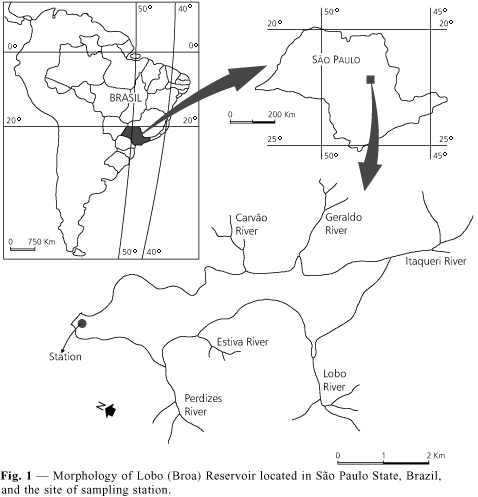The population dynamics, life cycle and feeding of Argyrodiaptomus furcatus and Notodiaptomus iheringi, were studied in Broa reservoir from August 1988 to August 1989, period when a replacement of A. furcatus by N. iheringi was observed. Some abiotic factors such as temperature, dissolved oxygen, pH and conductivity were measured to characterize the limnological conditions of the reservoir. Also, phytoplankton composition was analyzed and related to the feeding of the two species. Experimental data on developmental time and reproduction of A. furcatus and N. iheringi under different temperatures showed that lower temperatures were responsible for density decreasing of both populations in the reservoir during the dry season. Chlorophyta and Chrysophyta smaller than 20 mum were the most abundant phytoplankton groups in the reservoir as well as in the gut content of A. furcatus and N. iheringi, representing an important food source for both species. The temporary disappearance of Argyrodiaptomus furcatus, observed between 1988 and 1989 and its replacement by Notodiaptomus iheringi was related to mining activities upstream, modifying the water turbidity, pH and conductivity. However, the reappearance and maintenance of A. furcatus for another ten years and a recent replacement re-incidence indicates that these two calanoids do not coexist in this environment. Adaptive strategies of both species, related to changes in environmental conditions, are discussed. Probably, Argyrodiaptomus furcatus is an indicator of less eutrophic environments, while Notodiaptomus iheringi of more eutrophic systems.
Copepoda Calanoida; life cycle; feeding; adaptive strategy; abiotic factors; shallow reservoir











